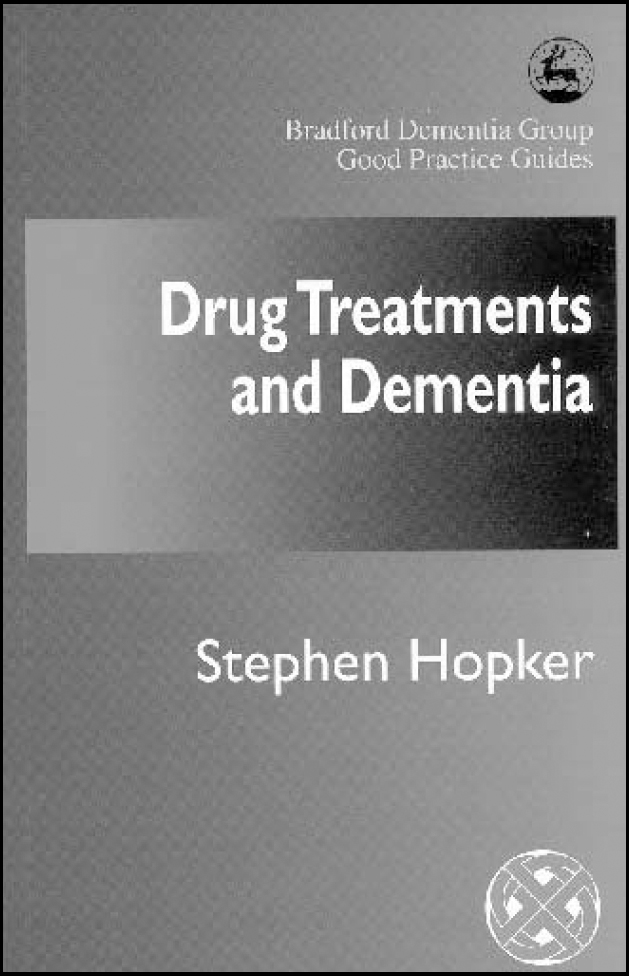Drug Treatments and Dementia is the first of a series of good practice guides from the Bradford Dementia Group. It is a tribute to the late Professor Tom Kitwood, holder of the Alois Alzheimer Chair at the University of Bradford, who was a strong advocate of helping the person suffering from dementia, rather than just treating the disease itself. It is written in good size print and is relatively compact considering the subject at hand. Hopker writes in an easy to read conversational style, explains technical terms and uses case studies to highlight particular areas of importance.?

Hopker recommends understanding the underlying reasons for the problem behaviour or the presenting symptoms in the context of the ‘person’ and the social environment. He warns about losing sight of the person when using structured assessment, and promotes a common sense approach of trying other interventions, such as environment modification before considering pharmacotherapy. There is discussion about the problem of untreated and under-treated depression in dementia and a review of the evidence for the efficacy of antipsychotic, antidepressant, anxiety and antidementia drugs.
Overall, I could not help feeling that Hopker has presented a somewhat pessimistic view of the various drugs used in dementia, with some repetition about the pitfalls of current research. I agree with the author that studies on the new treatments in dementia need to include measures like activities of daily living and quality of life. He has used number needed to treat (NNT) to show modest efficacy for new treatments in various trials. For example, five patients need to be treated with donepezil to achieve an effect in one.
I think there is a danger of the real person being lost under the weight of evidence-based medicine (EBM). EBM may be important, but one must remember ‘today's evidence can be tomorrow's myth’ and that medicine would not have advanced if the researchers and clinicians of the past had restricted themselves to the evidence available at the time.
This is a stimulating book and I recommend it to all professionals involved in the care of patients suffering from dementia. It should be especially useful to general practitioners, junior doctors and carers from different backgrounds, including interested informal carers.



eLetters
No eLetters have been published for this article.